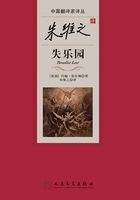She thought over this a good deal, and would have found immense relief if she dared have consulted anyone.But she could not make up her mind to reveal her unhappiness to her people.She had been married so recently, everybody had thought her marriage so delightful, she could not bear that her father and mother should be distressed by knowing that she was wretched.She also reflected with misery that New York would talk the matter over excitedly and that finally the newspapers would get hold of the gossip.She could even imagine interviewers calling at the house in Fifth Avenue and endeavouring to obtain particulars of the situation.Her father would be angry and refuse to give them, but that would make no difference; the newspapers would give them and everybody would read what they said, whether it was true or not.She could not possibly write facts, she thought, so her poor little letters were restrained and unlike herself, and to the warm-hearted souls in New York, even appearing stiff and unaffectionate, as if her aristocratic surroundings had chilled her love for them.In fact, it became far from easy for her to write at all, since Sir Nigel so disapproved of her interest in the American mail.His objections had indeed taken the form of his feeling himself quite within his rights when he occasionally intercepted letters from her relations, with a view of finding out whether they contained criticisms of himself, which would betray that she had been guilty of indiscreet confidences.He discovered that she had not apparently been so guilty, but it was evident that there were moments when Mrs.Vanderpoel was uneasy and disposed to ask anxious questions.When this occurred he destroyed the letters, and as a result of this precaution on his part her motherly queries seemed to be ignored, and she several times shed tears in the belief that Rosy had grown so patrician that she was capable of snubbing her mother in her resentment at feeling her privacy intruded upon and an unrefined effusiveness shown.
"I just feel as if she was beginning not to care about us at all, Betty," she said."I couldn't have believed it of Rosy.
She was always such an affectionate girl.""I don't believe it now," replied Betty sharply."Rosy couldn't grow hateful and stuck up.It's that nasty Nigel I know it is."Sir Nigel's intention was that there should be as little intercourse between Fifth Avenue and Stornham Court as was possible.Among other things, he did not intend that a lot of American relations should come tumbling in when they chose to cross the Atlantic.He would not have it, and took discreet steps to prevent any accident of the sort.He wrote to America occasionally himself, and knowing well how to make himself civilly repellent, so subtly chilled his parents-in-law as to discourage in them more than once their half-formed plan of paying a visit to their child in her new home.He opened, read and reclosed all epistles to and from New York, and while Mrs.Vanderpoel was much hurt to find that Rosalie never condescended to make any response to her tentatives concerning her possible visit, Rosalie herself was mystified by the fact that the journey "to Europe" was never spoken of.
"I don't see why they never seem to think of coming over,"she said plaintively one day."They used to talk so much about it.""They?" ejaculated the Dowager Lady Anstruthers."Whom may you mean?""Mother and father and Betty and some of the others."Her mother-in-law put up her eye-glasses to stare at her.
"The whole family?" she inquired.
"There are not so many of them," Rosalie answered.
"A family is always too many to descend upon a young woman when she is married," observed her ladyship unmovedly.
Nigel glanced over the top of his Times.
"I may as well tell you that it would not do at all," he put in.
"Why--why not?" exclaimed Rosalie, aghast.
"Americans don't do in English society," slightingly.
"But they are coming over so much.They like London so--all Americans like London."
"Do they?" with a drawl which made Rosalie blush until the tears started to her eyes."I am afraid the sentiment is scarcely mutual."Rosalie turned and fled from the room.She turned and fled because she realised that she should burst out crying if she waited to hear another word, and she realised that of late she seemed always to be bursting out crying before one or the other of those two.She could not help it.They always seemed to be implying something slighting or scathing.They were always putting her in the wrong and hurting her feelings.
The day was damp and chill, but she put on her hat and ran out into the park.She went down the avenue and turned into a coppice.There, among the wet bracken, she sank down on the mossy trunk of a fallen tree and huddled herself in a small heap, her head on her arms, actually wailing.
"Oh, mother! Oh, mother!" she cried hysterically."Oh, I do wish you would come.I'm so cold, mother; I'm so ill!
I can't bear it! It seems as if you'd forgotten all about me!
You're all so happy in New York that perhaps you have forgotten--perhaps you have! Oh, don't, mother--don't! "It was a month later that through the vicar's wife she reached a discovery and a climax.She had heard one morning from this lady of a misfortune which had befallen a small farmer.It was a misfortune which was an actual catastrophe to a man in his position.His house had caught fire during a gale of wind and the fire had spread to the outbuildings and rickyard and swept away all his belongings, his house, his furniture, his hayricks, and stored grain, and even his few cows and horses.He had been a poor, hard-working fellow, and his small insurance had lapsed the day before the fire.He was absolutely ruined, and with his wife and six children stood face to face with beggary and starvation.
Rosalie Anstruthers entered the vicarage to find the poor woman who was his companion in calamity sobbing in the hall.A child of a few weeks was in her arms, and two small creatures clung crying to her skirts.














